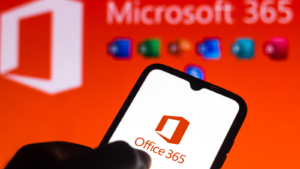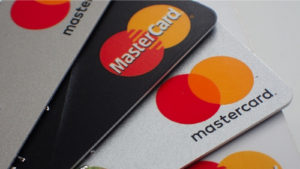The coronavirus pandemic combined with the rise of stock trading apps led to a sharp increase in the number of retail traders. Much has been written about these new investors — many of whom are younger than your typical investor — the types of investments they are interested in, and their risk tolerance. If you’re one of these newly minted investors, you might be wondering what are some of the best stocks for beginners like yourself.
For those just starting out on their investing journey, it’s best to avoid purely speculative picks. Instead, target well-known companies that offer stability along with the potential for upside appreciation.
Below are seven of the best stocks for beginners to buy now.
| MSFT | Microsoft | $255.02 |
| GOOGL | $100.44 | |
| PFE | Pfizer | $50.91 |
| KO | Coca-Cola | $64.35 |
| MA | Mastercard | $360.06 |
| BRK-B | Berkshire Hathaway | $316.15 |
| SQ | Block | $68.18 |
Best Stocks for Beginners: Microsoft (MSFT)

Microsoft (NASDAQ:MSFT) has been a long-term winner for shareholders and there’s no reason to suggest this will change. In fact, with shares down roughly 24% year to date, invetsors are getting a rare chance to buy the stock on sale.
Despite being an established, nay, the established player in the software space, the company’s three-year revenue growth rate of 17.4% is better than nearly 73% of its peers. This is due in large part to the strength of its cloud services, namely Azure. In the most recent quarter, Microsoft Cloud revenue surpassed 50% of the company’s total revenue for the first time. It’s clear the direction Mister Softee is headed in, and it’s one with a long growth runway.
Despite shares losing nearly a quarter of their value this year, they are trading slightly above their 10-year median on a trailing and forward P/E basis. But investors shouldn’t be afraid to pay a slight premium for a premium stock like Microsoft. When tech stocks come back into favor, MSFT is likely to trade with a much higher valuation than it is today.
Alphabet (GOOGL)

Alphabet (NASDAQ:GOOGL) sold off as much as 20% following the release of disappointing third-quarter earnings, hitting a 52-week low of $83.34 on Nov. 3. Although shares have regained most of that ground, they are still down more than 30% for the year, representing a great opportunity for beginner investors.
Let’s talk about Alphabet’s “disappointing” earnings for a moment. While a weakening global economy is causing firms to spend less on digital advertising, the company still managed to grow Q3 revenue by 6% year over year to $69.1 billion. And Google cloud revenue actually came in better than expected at $6.87 billion for the quarter.
Economic headwinds are likely to continue to weigh on ad sales, but is anyone really worried about the company’s ability to weather the storm? Alphabet will continue to dominate search advertising for the foreseeable future while strategically bolstering its cloud position.
Analysts are clearly bullish on the stock. Of the 48 who cover it, 44 rate it a “buy” or “overweight,” with four “holds” and no “sell” ratings. Analysts’ average target price of $125.83 implies 25% upside over the next 12 months. In the long term, shares can go much higher.
Best Stocks for Beginners: Pfizer (PFE)

Pfizer (NYSE:PFE) went on a monster run off its pandemic lows, up as much as 133% after the company brought an approved Covid-19 vaccine to market. The stock has fallen 17.5% from that high amid concerns that waning Covid-19 vaccine sales will hurt the company’s bottom line.
Those fears are likely overblown, though. First, Pfizer’s Covid-19 vaccine sales were better than expected in the third quarter, prompting management to raise its full-year Covid-19 vaccine sales forecast by $2 billion to $34 billion. Yes, sales are likely to slow as fears of the virus dissipate. And patents for a number of Pfizer’s key drugs are set to expire by 2030. But the company has a strong pipeline, including a vaccine for respiratory syncytial virus, that should help offset the loss of revenue.
Pfizer displayed its technical prowess in developing a Covid-19 vaccine. Additionally, the billions brought in from the sale of the vaccine will help fund the significant R&D expenses requireds for new drug development. Beginner investors should expect the pharmaceutical powerhouse to be a long-term winner.
Coca-Cola (KO)

Investors in Coca-Cola (NYSE:KO) don’t expect the beverage company to deliver eye-popping gains. Over the past five years, shares are up around 40% compared with 54% for the S&P 500. Yet, shares have held up substantially better than the broader market during the 2022 bear market, rising nearly 9%.
In other words, KO can typically be counted on for its steady price action, even during periods of economic weakness. This is due in large part to the company’s dividend. Coca-Cola is a Dividend Aristocrat, having raised its dividend payout for 60 consecutive years. Currently, the company pays a quarterly dividend of 44 cents per share for a forward yield of 2.8%.
KO is a rock-solid investment that can provide excellent returns when the dividend is simply reinvested into buying more shares.
Best Stocks for Beginners: Mastercard (MA)

Mastercard (NYSE:MA) is another stock that has held up much better than the broader market, with shares roughly flat for the year. While there have been concerns about how a weaker economy will impact the credit and debit card processor, Mastercard CEO Michael Miebach said in the company’s latest earnings report that “consumer spending remains resilient.”
Mastercard saw revenue increase 15% year over year to $5.8 billion for the third quarter. On a currency-neutral basis, revenue was up 23%. Net income increased by 4.2% year over year to $2.5 billion. Holiday spending should provide a tailwind for the company in the current quarter.
In addition to being a leader in the payment processing space, Mastercard may provide beginner investors with a safer way to play cryptocurrencies. Investing in digital currencies is fraught with risk. Just look at the recent implosion of cryptocurrency exchange FTX. But Mastercard has made inroads into the segment, providing services and securing partnerships. Thus, the established company could provide beginner investors with a way to play the sector without taking any undue risk.
Berkshire Hathaway (BRK.B)

Even beginner investors are likely to have heard of Warren Buffett and Berkshire Hathaway (NYSE:BRK-B). Buffett is one of the greatest investors the world has ever seen. His focus on easy-to-understand, undervalued companies with long-term economic viability that produce strong cash flows makes him an excellent role model for new investors.
Purchasing shares of the holding company gives investors a chance to benefit from Buffett’s wisdom by offering exposure to the companies he believes will be long-term winners. This includes Apple (NASDAQ:AAPL), Berkshire Hathaway’s largest holding at nearly 42%. Other holdings include Bank of America (NYSE:BAC), Chevron (NYSE:CVX), Coca-Cola and Occidental Petroleum (NYSE:OXY). Additionally, Berkshire has its hand in a number of other industries, including insurance, utilities and energy, manufacturing and the railroad industry.
A look at Berkshire’s operating earnings shows the company knows what it is doing. For the third quarter, the company reported $7.76 billion in earnings, up 20% year over year.
BRK-B is up around 6% on the year, a testament to the company’s strategy and ability to find value in difficult times.
Best Stocks for Beginners: Block (SQ)

Block (NYSE:SQ) is a great stock for beginners to buy because it aligns with young investors’ vision for finance. Formerly known as Square, the company’s digital payments platform grew rapidly during the 2010s. Last year, CEO Jack Dorsey changed the company’s name to Block to better reflect its future business, which includes an integrated system that spans e-commerce, banking, blockchain and cryptocurrency. In short, Block aims to be a one-stop shop for all things finance for an evolving consumer base.
SQ stock is a bit riskier than some of the other names on this list. That said, its recent financials show a company that is on solid footing. For Q3, revenue jumped 17% from a year ago to $4.52 billion. Meanwhile, gross profits increased 38% to $1.57 billion. Block’s CashApp and Square business segments contributed the bulk of those profits, rising 51% and 29% year over year, respectively.
Square has carved out a dominant position in fintech and this dominance is likely to lead to big rewards for long-term shareholders.
On the date of publication, Alex Sirois did not have (either directly or indirectly) any positions in the securities mentioned in this article. The opinions expressed in this article are those of the writer, subject to the InvestorPlace.com Publishing Guidelines.
